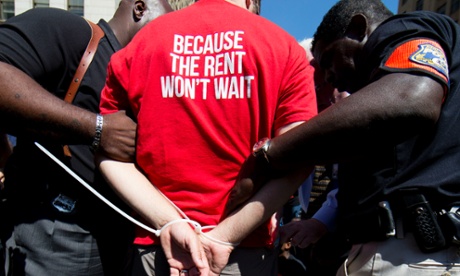Ahead Of The Curve On Minimum Wage

Philadelphian restauranteurs Christian Mora and Brian Oliveira, who co-own Girard Brasserie and Bruncherie, plan to ban customer tipping and instead pay their employees an average wage of $13, give four paid vacation days for every six months an employee works, give some paid sick days and pay 100 percent of health care benefit costs. They expect this to translate into a more stable, loyal and less stressed workforce, and have already received a different caliber of applicants. In an industry where median pay for servers is less than $9 an hour, this is dynamic and new territory. And it’s absolutely necessary.
Critics of raising the minimum wage are throwing everything they’ve got at it; there are claims that raising the minimum wage would raise the taxes businesses would have to pay, raise the prices of goods and services and kill jobs. Yes, a sharp, sudden increase could hurt small businesses. But what jobs would be “killed” by raising the minimum wage? Ones that people cannot survive on?
READ MORE: Raising The Minimum Wage Won't Sink L.A. Businesses
Relative to economic growth, minimum wage has remained practically stagnant for decades. But as the cost of living continues to rise (and under the current economic model it will), so must the minimum wage. Those who argue that raising the minimum wage will be devastating to businesses don’t understand that current state of minimum wage is already slowly and surely devastating families, individuals and (yes) the economy itself. Maybe some small businesses couldn’t sustain the same workforce if they had to raise minimum wage for their workers to $13 an hour by tomorrow. However, all businesses must start figuring out how to accommodate paying workers a higher wage. Just because the effects of raising the minimum wage would be difficult for some to deal with certainly doesn’t mean that raising it is in itself unsustainable. Keeping a minimum wage workforce on the brink of perpetual poverty by suppressing their wages is what's unsustainable.
I believe a gradual raising of the minimum wage across the United States and a reconfiguration of corporate profits would be the best. Perhaps cities and states should start passing legislation that would require business of a certain size to raise their minimum wage first. For example, with a profit of $17 billion in 2013, we all know that Wal-Mart could easily afford to pay its workers a living wage—and here’s the kicker—while still making enough profit to satisfy shareholders. But they choose not to.
.jpg)
Perhaps Wal-Mart chooses to keep worker wages low for the same reasons other corporations do. In the United States there’s a cultural, economic and political myth that if you start a company that becomes successful or rise to the top of one, you are entitled to all of the benefits, profits and power even if it’s at the expense of others in the company. This myth is toxic. It has led to some corporation executives believing it is their mandated right to squeeze all they can out of their workers and to go to great lengths to keep their profits increasing by laying off workers and cutting pay and health benefits. But that kind of profit is a complete falsehood; it’s corporate executives slicing open their wrists and drinking their own blood in an effort to maintain the illusion that they are prospering. I think that if workers aren’t prospering along with executives, upper management etc., then a company has failed. I know plenty of people would scoff at that idea (and do scoff at that idea), but without the toil of workers, what is a company really worth? Of course people need jobs that a company provides, but a company needs workers, needs consumers and can’t survive without them.
Those at the top of companies who make decisions about workers shouldn’t assume entitlement; they should assume responsibility. They should realize as those who control pay, benefits and employee healthcare (don’t let them tell you otherwise), they are responsible for the wellbeing of their workers. Restaurant co-owners Oliveira and Mora recognize this in their attempt to redefine what it means to be bosses and what it means to work in a business the values the people performing the work that builds the capital. Sure, it may not be a worker co-op and it doesn’t solve the larger systemic issues of our economic model, but it is a way to reimagine capitalism, which is necessary for our survival. Businesses that have the means should be proactive in raising the wages they pay their workers and in offering benefits and healthcare. Being ahead of the curve is good for more than just business, it’s good for people.
The "War at Home" is a project of co-columnists Corinne Gaston and Maya Richard-Craven to examine and discuss contemporary issues of discrimination, violence and social injustice within American borders.
Contact Deputy Opinion Editor Corinne Gaston here; or follow her on Twitter.



